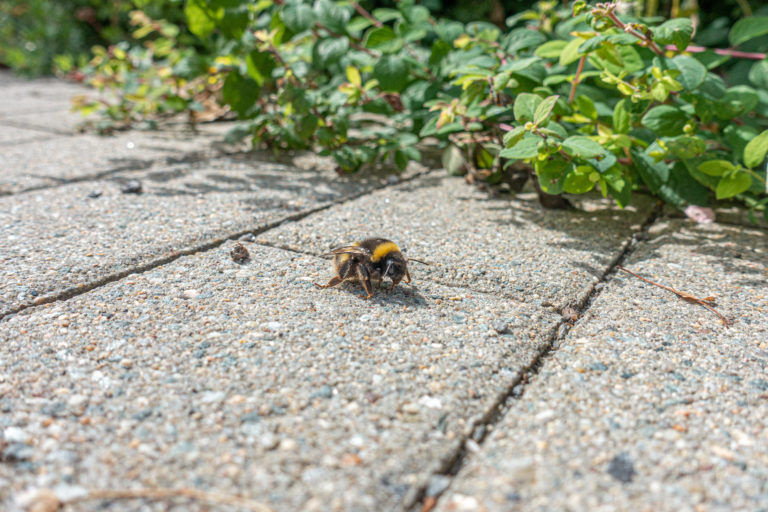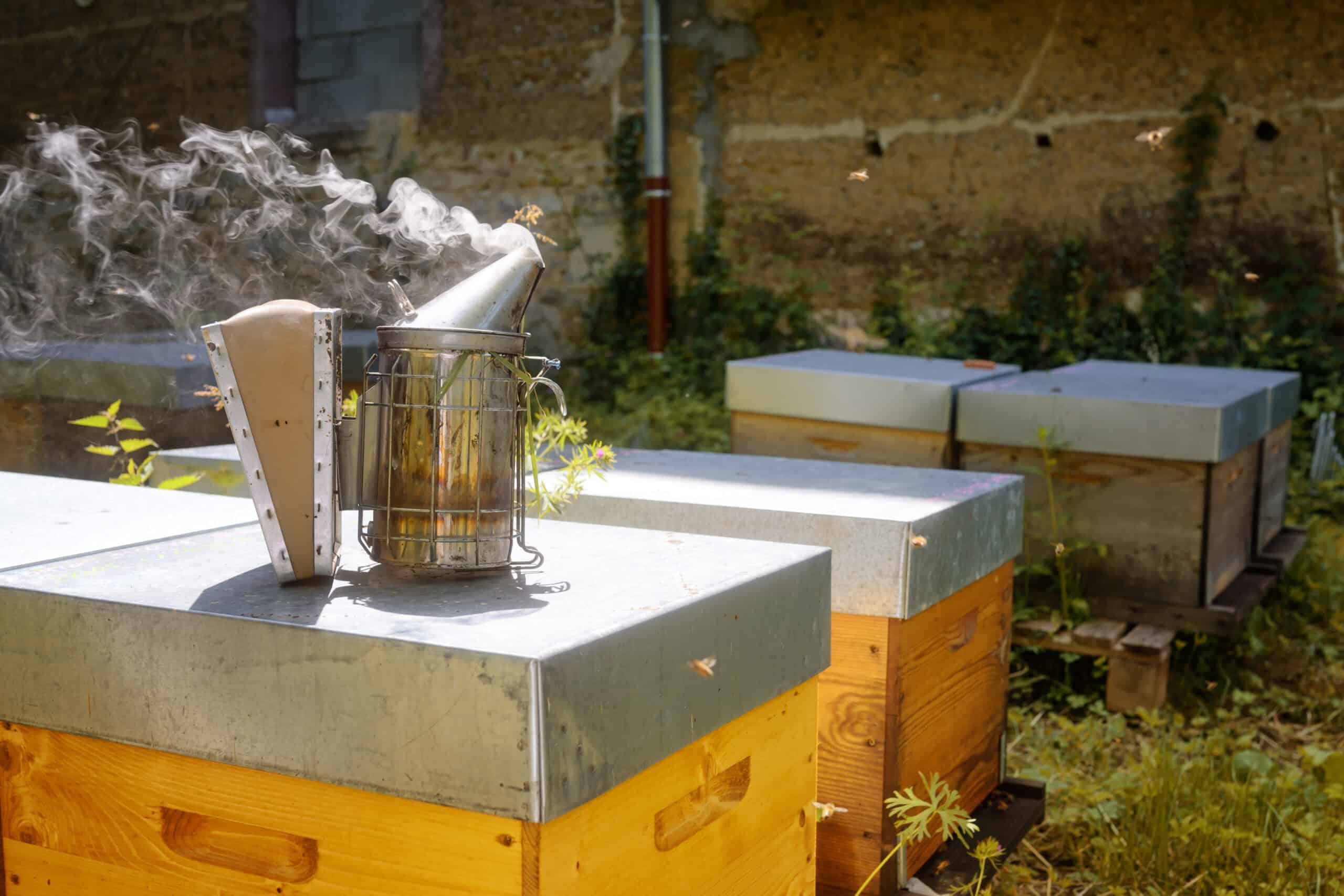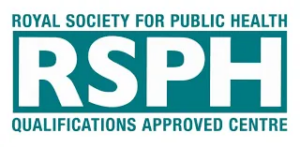Our bees are in trouble!
The UK has over 250 species of bees, and it has been well publicised over the past few years about the decline in numbers and ultimate extinction of some species.
Bees are a pollinating insect and are very important to our ecosystems. They help support the continued growth of plants and trees and they also play a crucial role in our food supply chains. Understanding what we can do to protect these fascinating creatures is key for both their future and ours.
In order to help prevent this from happening, members of the public are being called on to help! There are lots of simple things that you can do at home to begin to encourage bee populations to thrive.
Today marks a very special day, it is commonly known as don’t step on a bee day!
Therefore, as today is a recognised day, DALPEST are giving you some top tips on how you can help the Nations bees!
Watch your feet!
First things first, please try not to step on any bees.
This may seem easy advice to follow but it is key, many colonies can not afford to lose members so simply watching where you walk could save a little life!
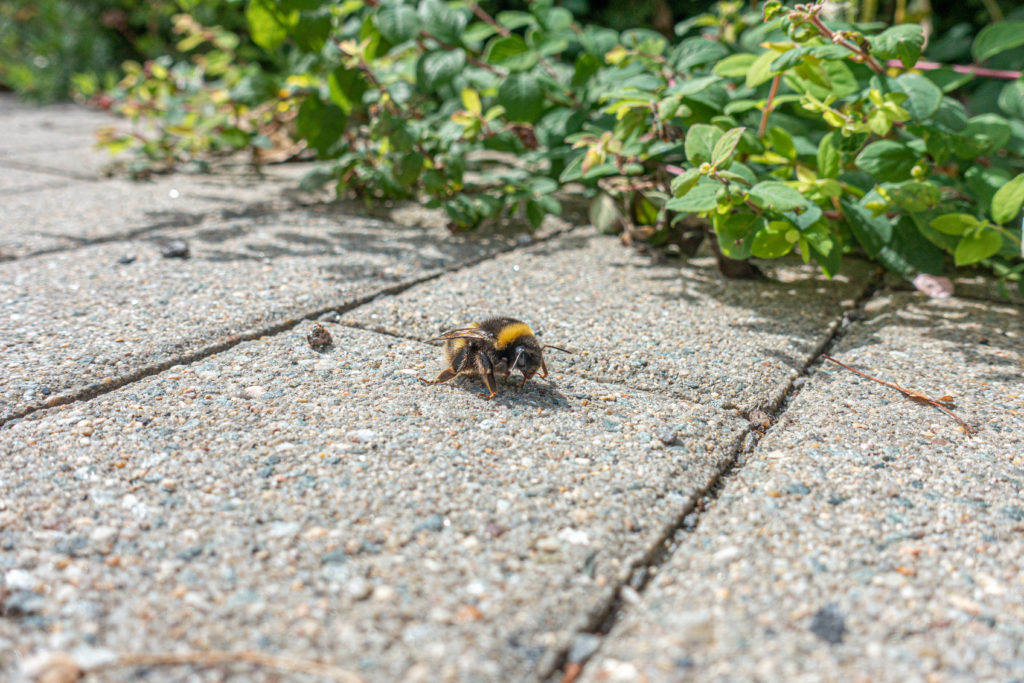
Help a struggling bee.
In the spring and summer months bees can become tired and may need to rest in between flights. This can cause them to be found low to the ground. Many of these bees will simply take off again and continue their journey, however if a bee has been on the ground for 30 minutes or longer they may need your help.
The best remedy is to mix a little 50/50 solution of white sugar and water in a small container, i.e. a drinks cap, and place it next to the bee. Tiny amounts of sugar will provide a small boost of energy and get the bee re-energised again.
Do not however attempt to give bees honey, as this could have a negative effect.
Your garden is a haven, make the most of it.
It is really easy to encourage wildlife into your garden, and it doesn’t matter the size or the shape or where you are in the country for this to be possible.
Bees like flowers, we all know this, but did you know there are a range of common flowers that you can plant and that bees will love? These are really beneficial and will support the pollination process, plus they also look attractive in the garden. Bees are highly attracted to bright coloured flowers and will flock towards yellow, purple and white colours.
This little selection of flowers (among others) are best for bees and butterflies
- Honeysuckle
- Peony
- Lavender
- Sunflowers
- Primrose
- Bee Balm (wild bergamot)
- Marigolds
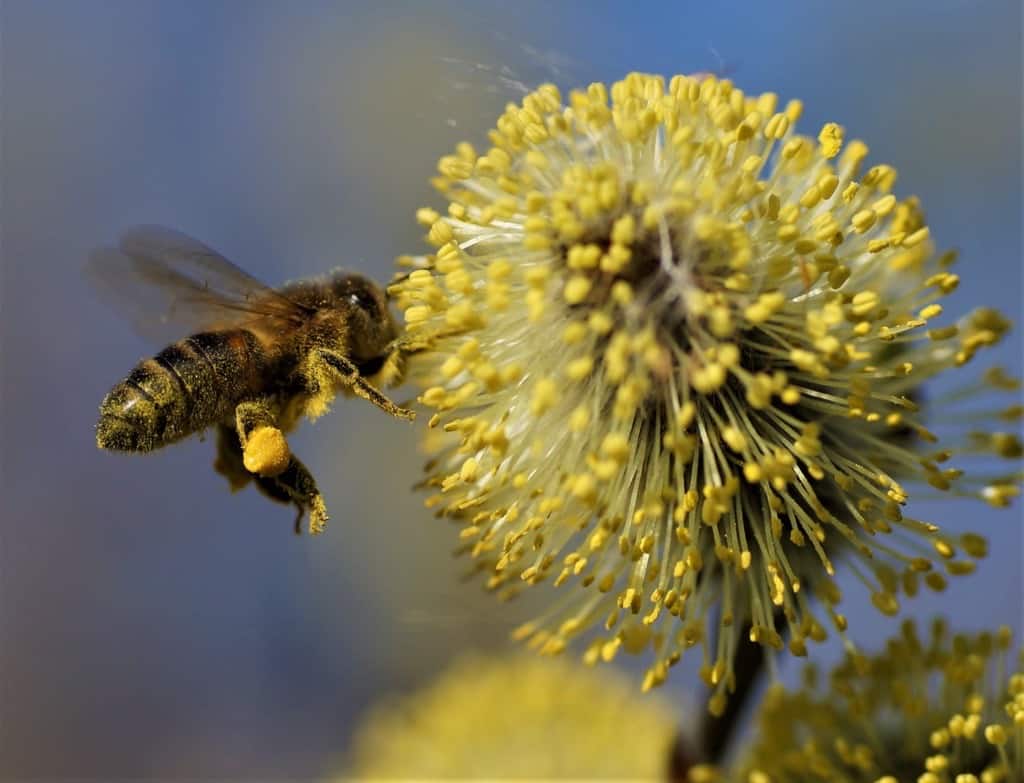
A home for a bee.
More recently, there has been a trend for bee hotels, these can either be purchased pre-built, or you can have a go at constructing your own. Never heard of a bee hotel? Take a look at the picture below to see what one looks like.
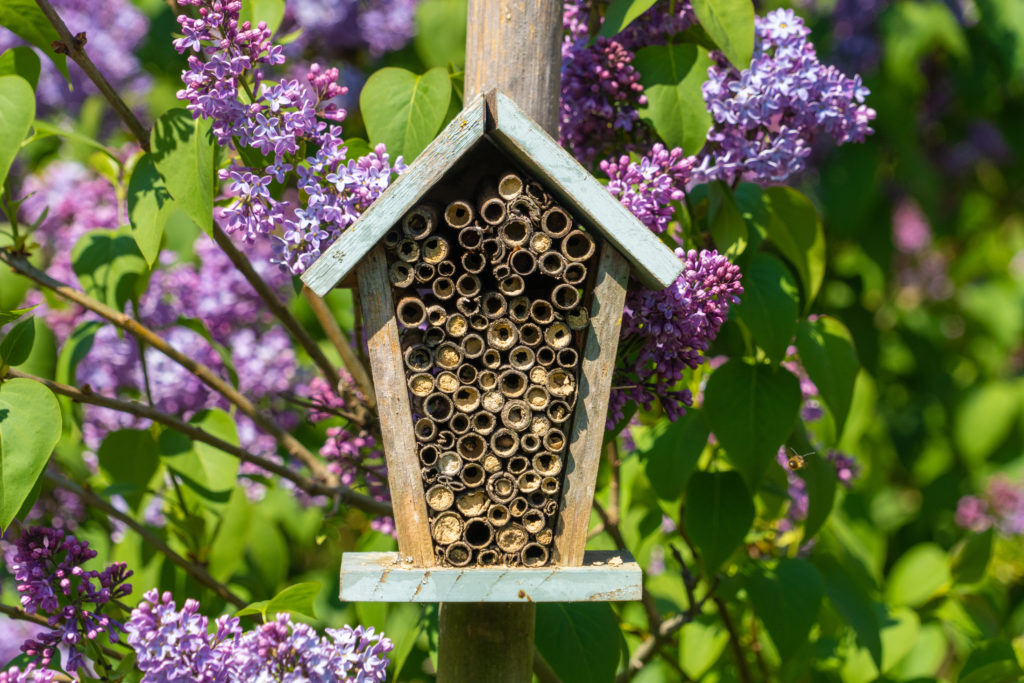
These hotels are designed to attract species of solitary bees, so you don’t need to worry that you will wake up with a swarm in the garden.
They can be crafted easily from reeds, canes and some wood, and provide the perfect place for single bees to safely reside, build a nest and lay their eggs.
Support your local beekeeper.
Our last important tip is to support local workers and business wherever possible. Your local beekeeper will have a steady supply of honey to sell, so find out where they sell it and help support a local cause.
There are a number of other resources that you can use to find out more information on this subject, a great site is https://www.bbka.org.uk as this is the home of the British Beekeepers Association.
They can help you locate local keepers, find out more about the work they do or even help you understand how you can train to become a keeper yourself.
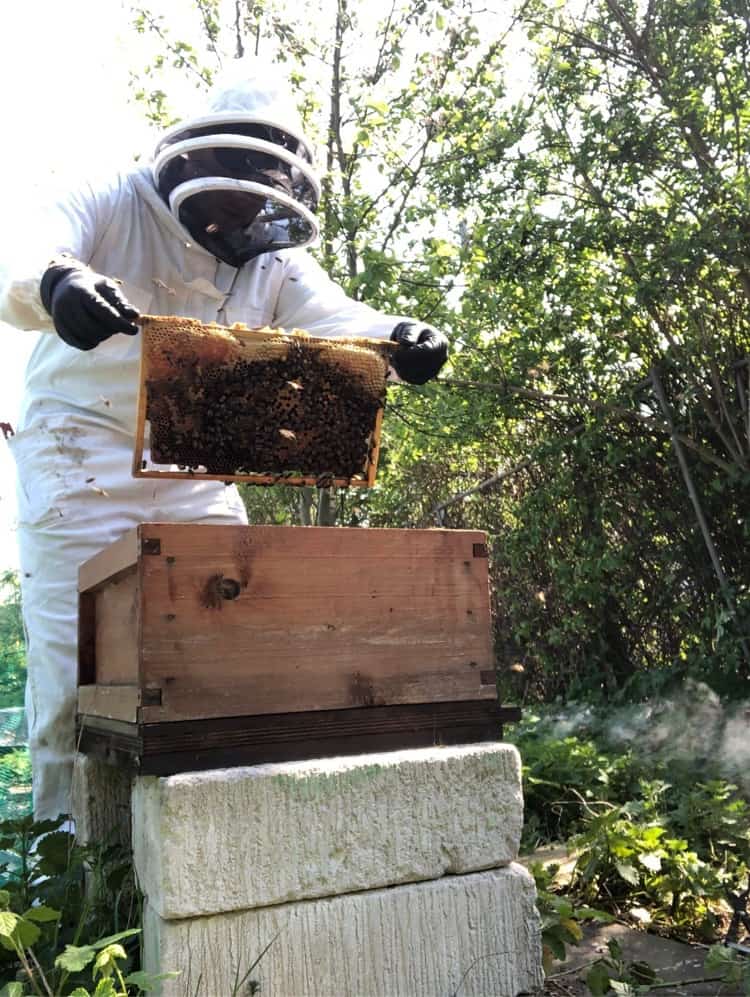
We hope you enjoyed the tips for bringing more bees into your environment!
Remember, if you have a suspected swarm of bees you can speak to DALPEST on 0333 2026 223 for advice on the best way to deal with it, or visit our website page Bee Pest Control Services | DALPEST – 24/7 Pest Control.

